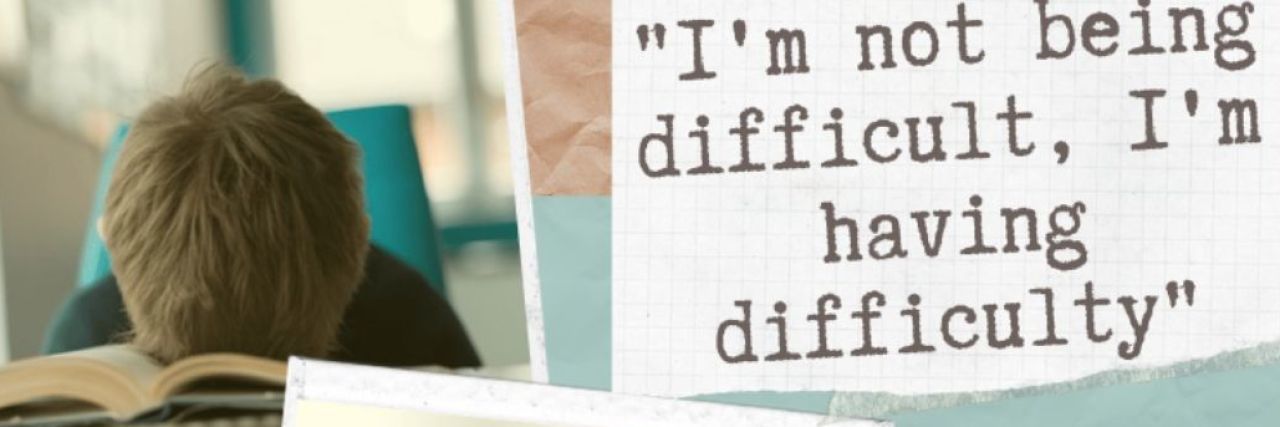A picture from Bury Neurodiversity Champions has helped me change how I view my disability. The picture shows a boy with his head down while reading the words, “I’m not being difficult, I am having difficulty.” The image also shows a mother dressed as a super hero, with the words, “Maybe my mum is right after all.” I have been the child with the head down and frustrated in a math workbook or a science book. I also had the “super hero” parents who encouraged me, through my frustrations.
Many of the difficulties such as processing information, limited hand dexterity and the need for accessibility have caused many misunderstandings with others. Some of the labels I have received have been “slow,” “dumb,” “lazy,” “high maintenance” and “annoying.”
Information processing is one of my biggest difficulties. Academically this creates problems with timed testing, and lectures as well. I can remember once when a professor called on me, when I didn’t have my hand raised. I gave a wrong answer to an obvious question and resulted in having the class and professor laugh at me. It wasn’t because I wasn’t paying attention, but instead my brain needed extra time to process what was being asked. I found previewing information before class and extended test time to be helpful for me. I have also have found that answering the questions that I did know to be effective in building confidence.
Information processing creates social difficulty too. I often forget the rules of simple card and board games. I don’t have the stratagem to see what the other person is doing and recognize how to beat them. I have found that when I participate in a game night, gentle and frequent reminders of what the rules of the game are helpful. Also pairing me with people who share the “it’s just for fun” attitude helps as well.
My limited hand dexterity and eye hand coordination have also caused misunderstandings. I frequently bump into things, trip and spill things. My hand dexterity makes swiping a credit card difficult in the checkout line or opening gates at a subway station. I am also unable to play pool, because my hands cannot hold a pool stick.
My eye hand coordination affects my ability to play sports. I flinch every time a ball comes at me and lack the coordination to perform well at competitive sports. Having feet that turn in due to how I was position in the womb and Scoliosis also don’t help with my body awareness.
I struggle with visual perception on steps too. The need to go slower is not due to physical pain, but so I don’t misjudge a step and fall. If the steps don’t have a color contrast, it makes it more difficult to coordinate.
I also need to have my home be accessible to me as well. I don’t need a ramp for a physical disability. I need to have space to keep my things organized. I lived in small apartments before, and found it hard to maintain. I also struggled to keep my room clean when I was young. Having too much stuff was not the issue, but I would forget what I had, if I put it in the closet I have found that finding ways to keep things visibly stored has helped. One of the nicest things about the house we bought is my dressing room. I have my dresses and skirts hung visibly. Home ownership also gives my husband and I the power to make our own decisions on how to make the house accessible. When I rented it was the landlord who had the say in what was done.
For so many years I let the influences of others affect how I felt about my disability. I viewed myself as being difficult. I have found it best to do what works for me and ignore the reactions of others. If I am having difficulty with my card in line at the grocery store, getting upset isn’t going to help me go faster. Hurrying on the stairs isn’t worth the risk of inquiring myself or others. It’s better to simply let the impatient person go ahead of me. I cannot control the actions of others. I am not being difficult; I am having difficulty with the task at hand.
Photo credit: Bury Neurodiversity Champions/Facebook

